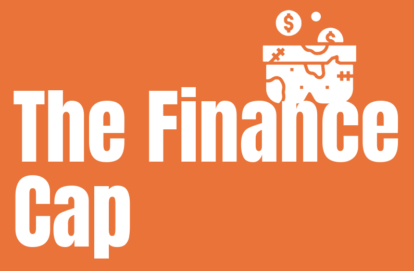Financial Literacy: What It Is and Why It’s Essential for Your Financial Future
Have you ever felt overwhelmed by your finances, unsure of where your money is going or how to plan for the future? You’re not alone. Financial literacy—understanding how money works and how to manage it effectively—is something many people aren’t taught in school. Yet, it’s one of the most critical skills you need to navigate life confidently. Whether you’re saving for a big purchase, trying to get out of debt, or planning for retirement, financial literacy is the key to achieving your goals. In this blog, we’re diving deep into financial literacy: what it is, why it matters, and how you can improve yours.
The good news is that financial literacy isn’t about memorizing complex formulas or becoming an investment guru. It’s about mastering the basics: budgeting, saving, managing debt, and understanding credit. These are practical skills you can apply to your daily life to build a secure financial future. Imagine feeling confident every time you make a financial decision, knowing you’re on the right path to achieving your dreams.
Why is financial literacy so important? Because money touches every aspect of our lives. It affects where we live, how we work, the opportunities we can provide for our families, and even our mental health. Financially literate individuals are better equipped to handle life’s challenges, avoid debt traps, and build wealth over time. But financial literacy doesn’t just empower you to survive—it gives you the tools to thrive. It’s about creating a life where money is a tool, not a source of stress.
By the end of this article, you’ll understand why being financially literate is one of the best investments you can make in yourself. You’ll also learn actionable steps to take control of your money, build financial confidence, and work toward your goals—whatever they may be. So, grab a notebook, settle in, and get ready to start your journey toward financial empowerment.

What is Financial Literacy?
At its core, financial literacy is the ability to understand and effectively manage your personal finances. It involves knowing how to budget, save, invest, manage debt, and make informed decisions about money. Being financially literate doesn’t mean you have to be an expert in complex financial topics like stock trading or tax law—it simply means you have the tools and knowledge to make smart financial choices.
Key aspects of financial literacy include:
- Budgeting: Knowing how to track your income and expenses.
- Saving: Setting money aside for emergencies, big purchases, and retirement.
- Investing: Understanding how to grow your wealth over time.
- Debt Management: Using credit responsibly and avoiding high-interest debt.
- Understanding Credit: Knowing how credit scores work and how to build good credit.
- Planning for the Future: Preparing for retirement, major life events, and unexpected costs.
Why Financial Literacy is Important
Financial literacy isn’t just a buzzword; it’s a crucial life skill that can make or break your financial well-being. Let’s explore why being financially literate is so important.
1. It Empowers You to Make Better Decisions
Have you ever been faced with a financial choice and felt unsure about what to do? Financial literacy gives you the confidence to make informed decisions. Whether it’s choosing a credit card, deciding how much to save, or determining if you’re ready to buy a home, understanding your finances empowers you to act wisely.
Example: Imagine being able to compare two credit card offers and pick the one with the best interest rate and rewards program because you understand how APR and fees work. That’s financial empowerment!
2. It Helps You Avoid Debt Traps
Credit cards, loans, and buy-now-pay-later options can be convenient, but they’re also easy ways to fall into debt. Without financial literacy, it’s tempting to overspend or misunderstand the true cost of borrowing. Understanding concepts like interest rates, minimum payments, and credit utilization can help you avoid costly mistakes.
Example: Knowing how interest accrues on a credit card balance can motivate you to pay it off quickly, saving you hundreds or even thousands of dollars.
3. It Prepares You for Emergencies
Life is full of surprises—some good, some not so much. From medical bills to car repairs, unexpected expenses can throw your budget off track. Being financially literate means understanding the importance of an emergency fund and having the tools to build one.
Example: A financially literate person knows to set aside three to six months’ worth of living expenses in a savings account, providing a safety net when life throws a curveball.
4. It Sets the Foundation for Long-Term Goals
Want to retire early? Buy your dream home? Travel the world? Financial literacy helps you break these big dreams into achievable steps. By understanding how to save, invest, and budget, you can work toward your goals without feeling overwhelmed.
Example: With financial literacy, you can calculate how much to save for retirement, open an IRA or 401(k), and choose investments that align with your timeline and risk tolerance.
5. It Reduces Stress and Improves Quality of Life
Money-related stress is one of the leading causes of anxiety. Being financially literate can ease that stress by giving you a sense of control over your finances. When you know how to manage your money, you can focus on what truly matters, like spending time with loved ones or pursuing hobbies.
Example: Imagine knowing exactly where your money is going each month and having a plan to tackle debt or save for the future. That kind of clarity brings peace of mind.
How Financial Literacy Transforms Lives
Let’s look at some real-world scenarios where financial literacy can make a tangible difference:
- Scenario 1: Without financial literacy, someone might rely on payday loans to cover unexpected expenses, leading to a cycle of high-interest debt. A financially literate person, on the other hand, would have an emergency fund to avoid this pitfall.
- Scenario 2: A financially illiterate individual might only make the minimum payment on credit cards, accumulating massive interest. Someone who understands financial principles would prioritize paying off high-interest debt to save money.
- Scenario 3: Investing can feel intimidating for those without financial knowledge. A financially literate person knows the basics of diversification, risk, and compound interest, allowing them to build wealth over time.
How to Improve Your Financial Literacy
Becoming financially literate doesn’t happen overnight, but small, consistent efforts can make a big difference. Here’s how to start:
1. Educate Yourself
- Read books like Rich Dad Poor Dad by Robert Kiyosaki or The Total Money Makeover by Dave Ramsey.
- Follow trusted personal finance blogs, podcasts, and YouTube channels for free advice.
2. Track Your Spending
- Use budgeting apps like Mint or YNAB to monitor your income and expenses.
- Identify areas where you can cut back and redirect funds toward savings or debt repayment.
3. Start Saving and Investing
- Open a high-yield savings account for your emergency fund.
- Begin investing in low-cost index funds or ETFs to grow your wealth.
4. Understand Your Credit
- Check your credit report regularly and dispute any errors.
- Learn how credit scores are calculated and take steps to improve yours, like paying bills on time and reducing credit card balances.
5. Practice Smart Borrowing
- Only borrow what you can afford to repay.
- Shop around for the best interest rates and terms before taking out loans.
Final Thoughts On the Benefits of Learning Financial Literacy
Financial literacy is about much more than numbers on a spreadsheet—it’s about taking control of your financial life and creating the future you want. Whether you’re just starting your financial journey or looking to sharpen your skills, becoming financially literate is one of the most impactful decisions you can make. It provides you with the tools and confidence to make smarter financial decisions, reduce stress, and open doors to opportunities you may never have thought possible.
Think about the difference financial literacy can make in your everyday life. Imagine knowing exactly how much money you need to cover your monthly expenses and having enough left over to save or invest. Picture being prepared for emergencies without the worry of falling into debt. Envision a future where you can retire comfortably, travel, or pursue your passions—all because you took the time to educate yourself about money.
The beauty of financial literacy is that it’s accessible to everyone. You don’t need to have a degree in finance or earn a six-figure salary to manage your money effectively. It’s about small, intentional steps that add up over time. Start by tracking your spending, creating a budget, or setting up an emergency fund. Take advantage of resources like books, podcasts, or financial advisors to learn more about saving, investing, and managing debt.
One of the greatest benefits of financial literacy is the freedom it provides. When you’re financially literate, you’re not tied to a paycheck-to-paycheck lifestyle. You’re in control, making proactive choices instead of reacting to financial challenges. This freedom doesn’t just affect your bank account—it improves your mental health, strengthens your relationships, and allows you to focus on what truly matters in life.
As you work on improving your financial literacy, remember that it’s a journey, not a destination. Celebrate your progress, no matter how small it may seem. Every step you take, whether it’s paying off a credit card or learning about investing, is a step toward financial empowerment.
If there’s one takeaway from this blog, it’s that financial literacy is an investment in yourself. It’s the foundation for a secure and fulfilling life. So, start today—create a budget, read a personal finance book, or set a financial goal. You don’t have to figure everything out at once; the key is to keep moving forward.
The journey to financial literacy might take time, but the rewards are worth it. By becoming financially literate, you’re setting yourself up for a future where you have the freedom to live life on your own terms. Take that first step today, and watch as your financial confidence grows and your dreams come into reach. Financial literacy isn’t just about managing money—it’s about creating the life you deserve. Let’s make it happen together!
